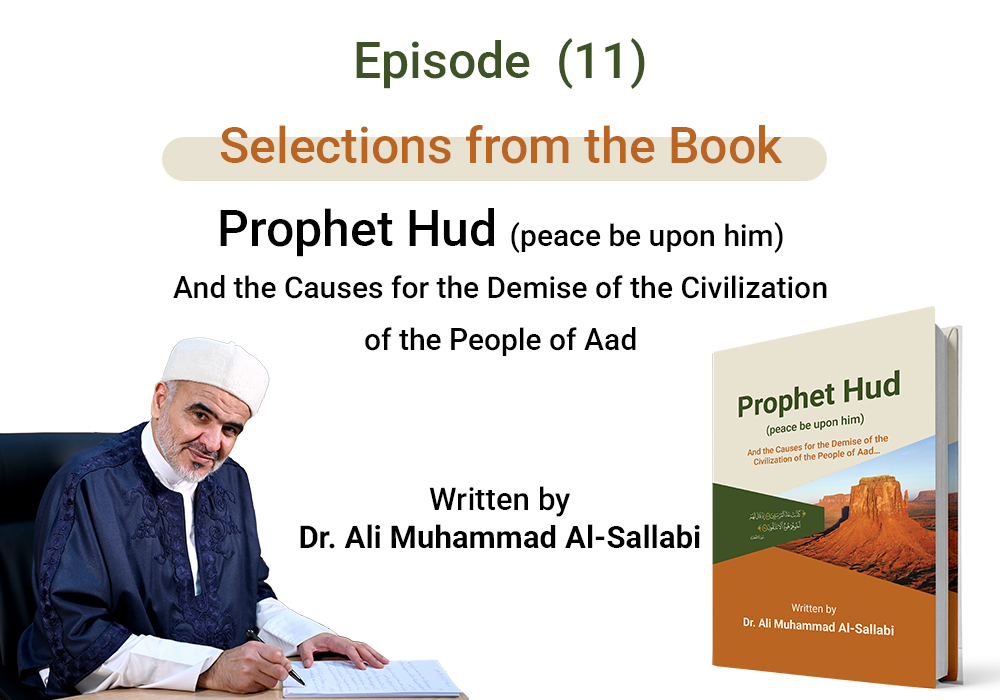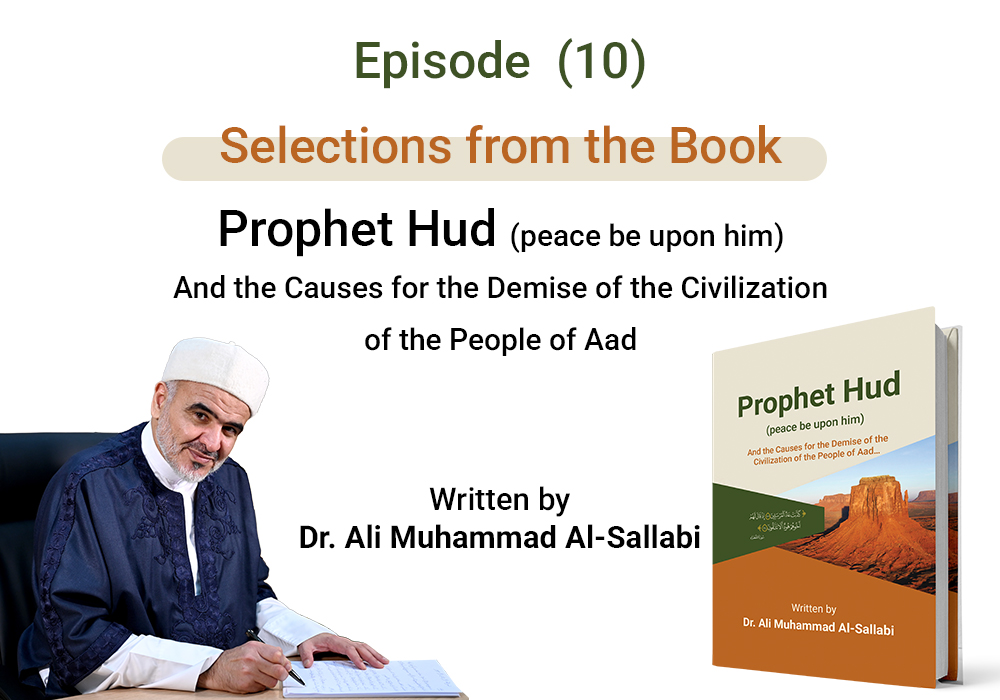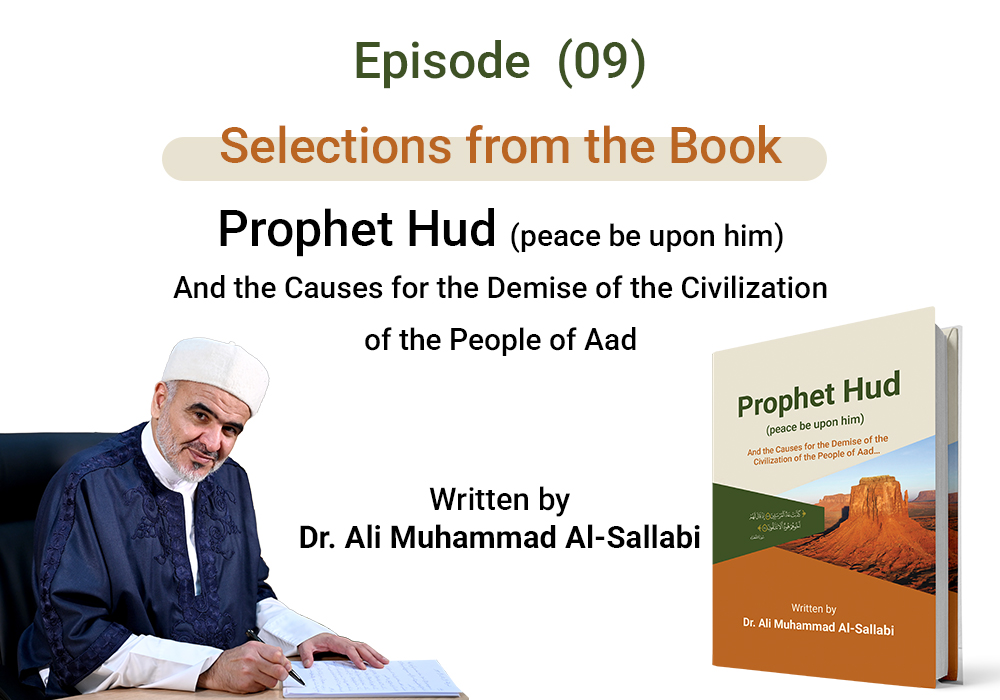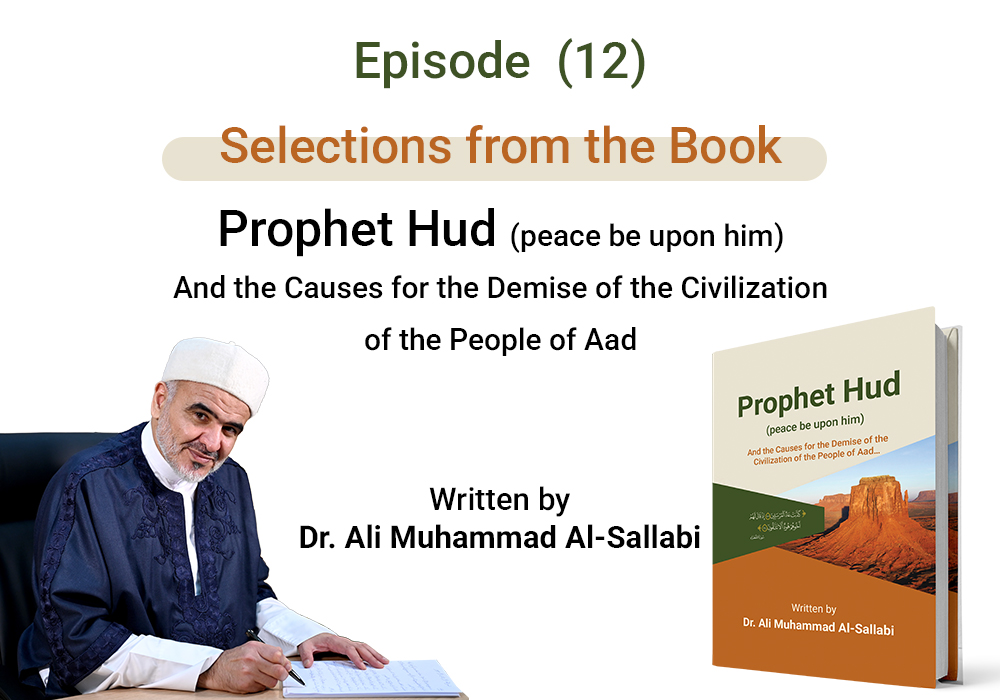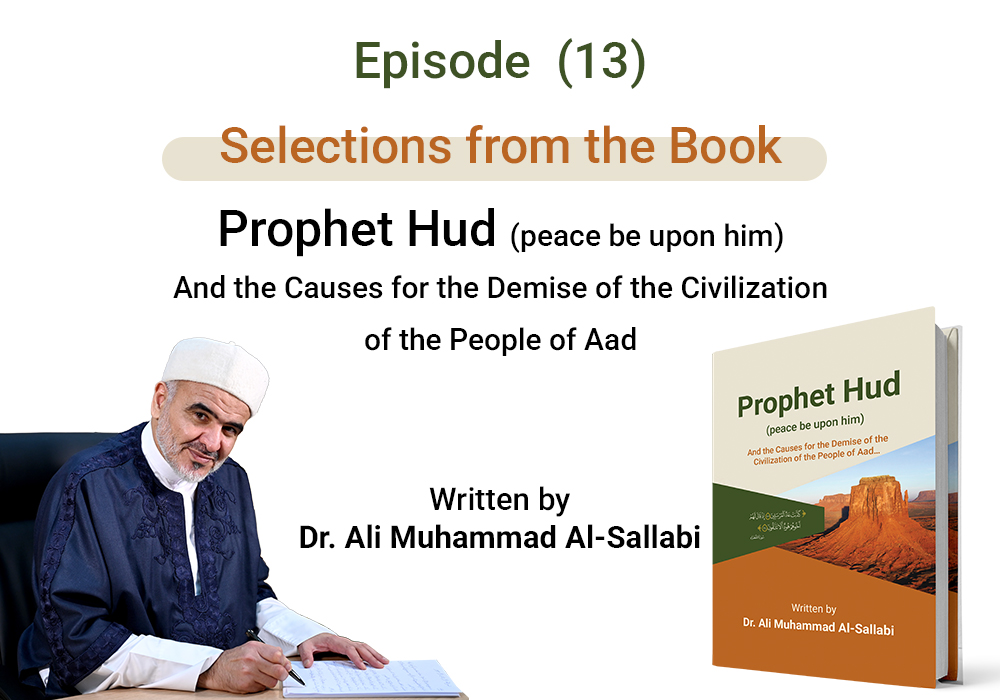The Semitic Arabs, or Aad in Egypt
Selections from the Book Prophet Hud (peace be upon him) And the Causes for the Demise of the Civilization of the People of Aad…
Written by Dr. Ali Muhammad al-Sallabi...
Episode (11)
This issue in Egypt has three parts, similar to Iraq: the Arab narrative, the statements of the Egyptians, and the confirmation of modern discoveries.
A - Ibn Qutayba says: "Among them are the Amaliq, who were nations that spread across the lands, and among them are the Pharaohs of Egypt."
The historian al-Ya'qubi says: "When they took control of the women, the Amaliq kings of the Levant desired them, so the king of the Amaliq, at that time, was al-Walid bin Dhomaa, who invaded the land, and they agreed to make him their king. He ruled for a long time, and then another king from the Amaliq, named Rayan bin al-Walid, became king. He is the Pharaoh of Joseph."
It is possible that the details and names are not accurate, but the essence of the story is correct. It is not surprising that these Arabic names are translations of the original names, and something similar is found in the "Mu'jam al-Buldan" by Yaqut al-Hamawi, where he says: "It is said that the Pharaohs of Egypt were from the Amaliq, and among them was the Pharaoh of Abraham, the Pharaoh of Joseph, and the Pharaoh of Moses."
Al-Tabari says: "He made his brother, Sinan bin Alwan, the ruler of Egypt, and he was the first of the Pharaohs. He was the king of Egypt when Abraham (peace be upon him) came."
Ibn Khaldun says: "Some of the Coptic kings sought the help of the king of the Amaliq... He came with him and ruled Egypt."
An alien people took control of Egypt two thousand years before Christ. The Egyptians called them Shashu (the shepherds), and the Hyksos (the shepherd kings), and they were Arabs. This is mentioned by the ancient Egyptian historian Manetho of Alexandria, who wrote the history of Egypt in Greek, 260 years before Christ. The original book is lost, but Greek authors referred to its scattered texts, and among those who relied on it is the Jewish historian Josephus.
Historical artifacts confirm the existence of the shepherd kings ruling Egypt, and the stay of Joseph and the Israelites during the reign of these Arab Semitic kings or shepherds, as stated by Arab historians. I elaborated on this period in my book: "The Prophet Minister Joseph The Truthful: From Trial to Empowerment", where I discussed the time Joseph (peace be upon him) and his brothers lived. I also addressed in my book "Moses (peace be upon him), the Enemy of the Arrogant and Leader of the Oppressed", what happened to the children of Israel after the death of Joseph (peace be upon him) and the transfer of rule from the Hyksos (Semites) to the Pharaohs.
The duration of the rule of the Semitic Arabs over Egypt, as mentioned in history, spans from the time of Abraham (peace be upon him) to just before the time of Moses (peace be upon him). Although some historical books may not be accurate in their information, and there were mistakes regarding the names of kings and a lack of distinction between the Hyksos kings and the Pharaohs of Egypt, the connection between the Semitic Arabs and Egypt was one of the strongest among the Semitic nations.
Hajar, the mother of the Arab children of Ishmael, came from Egypt, and the Arab caravans frequently traveled to Egypt. When famine struck during the time of Solomon in Egypt and the surrounding regions, the Queen of Yemen, which was the homeland of 'Aad and the Amaliq according to common accounts, requested food from Egypt. This is evident from an inscription found by Muslim archaeologists in Yemen during the early centuries, which shows the connection between the Arabs of Yemen and the Semitic Arabs who ruled Egypt under the title of the Shepherd Kings.
Recent discoveries by Egyptian archaeologists have confirmed that the Hyksos were Semitic Arabs. The German historian Hearn says that this incident shows that these tribes were invaders of Egypt from various directions, but the tribes coming from the east — meaning the Arabs — were the strongest. They invaded Lower Egypt. He continues: Their long beards and loose garments all indicate that they were Arabs. In fact, the evidence that the Hyksos were Arabs is conclusive, and it includes the following:
- The Arabs' statement that they ruled Egypt in ancient times.
- The acknowledgment by ancient Egyptians that the Arabs entered Egypt as conquering rulers.
- The linguistic and conceptual correspondence between the first king of the Hyksos and the conqueror of Egypt as mentioned by the Arabs.
- The Arabic or Semitic origin of the names of the Hyksos kings.
- The Arabic appearance and dress of their archaeological statues.
- The ancient relations between the Arabs and Egypt.
- The epithets used to describe the Hyksos that match those used for the Arabs.
- The references in the Torah.
- Support from archaeologists.
Confirmation by most European historians of their Arab origins based on the statements of Josephus and other ancient sources.
- Ali Muhammad al-Sallabi, Prophet Hud (peace be upon him) And the Causes for the Demise of the Civilization of the People of Aad, pp. 200-204.
- History of the Land of the Qur’an, p. 157.
- Ibn Khaldun's History, 2/120.
- Al-Tabari’s History, 1/134.
- History of the Land of the Qur’an, p. 156.
For further information and review of the sources for the article, see:
The Book of Prophet Hud (peace be upon him) And the Causes for the Demise of the Civilization of the People of Aad on the official website of Sheikh Dr. Ali Muhammad al-Sallabi:


